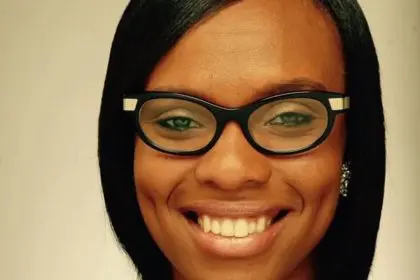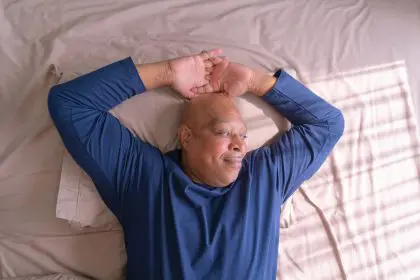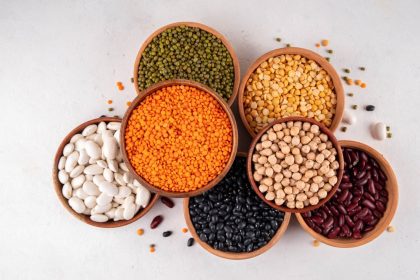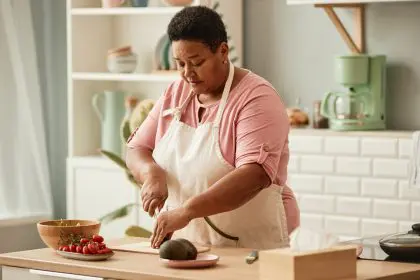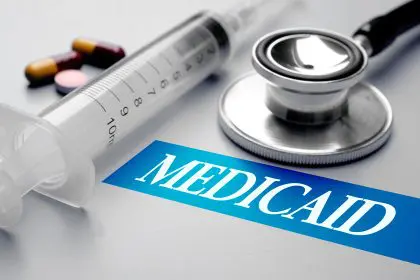With over 40 years of dedicated service in pediatric care, Dr. Cheryl Kendall has become a cornerstone of children’s healthcare in Atlanta. As the founder of We Care Pediatric and Adolescent Group in East Point, Georgia, Dr. Kendall brings her wealth of experience and passionate advocacy for children’s health to address pressing concerns affecting African American communities. A graduate of Tufts University Medical School and former Director of Pediatrics at Southside Healthcare, Dr. Kendall combines clinical excellence with a deep understanding of community needs.
What concerns do you see with parents and children today?
In general, the parents oftentimes are not as connected as they used to be with their kids, I think one of the problems with that is the cell phone era. A lot of times when they come into the office, the parents are on the cell phone, despite us having many signs all over the office saying, ‘Please do not use cell phones.’ They’re on the cell phones, and usually they’re doing things like social media or doing games while I’m talking to them about their child, trying to educate them about their child. So that is one of the problems, and then, of course, the kids, the main role model for the kids are the parents, so we always talking about how we want to decrease screen time with kids, but it’s kind of hard to do that when they’re seeing screen time a lot of times with the parents.
What are your thoughts on childhood obesity and nutrition?
That is a big factor, not only for your health physically, but also your health mentally, as far as childhood obesity, and a lot of times it is connected with not just the communities, but also how families prepare the food. One thing about the African American community and East Point in particular, we have a lot of food deserts where there aren’t many grocery stores. There are a lot of corner stores which, of course, a lot of people use that as their grocery store, they will go there, and they’ll buy a lot of junk foods. Their kids are oftentimes eating chips and takis and things of that nature, candy on a daily basis, sweet beverages on a daily basis, and a lot of times, it’s not that they can’t go to the grocery store, but of course, we go to the closest place, the closest place a lot of times are your little small corner stores.
What are your thoughts on sweet beverages and fast food?
The American Academy of Pediatrics, Georgia Academy of Pediatrics, all the pediatric societies have been pushing for more grocery stores in the African American community, and it has improved over the years because how it was 20 years ago. Now we see more grocery stores in the communities, but we still have to educate our patients, of course, it’s a matter of what you select. What you select impacts your health physically and mentally, we’re constantly asking about sweet beverages, which is one of the main things that affect our kids, our communities love juice, they drink 3, 4 cups of juice a day.
Juice is high in sugar, and we tell them we would prefer that you eat the fruit rather than drink the juice, and a lot of people think because they put it in smoothies that that makes it healthy. If you’re still having a lot of juices smoothies, it’s still the same principle. So we try to encourage them to decrease the juice, do not do juice every day, and the same for the sweet beverages. A lot of people in our community will call sweet beverages juice, but they’re really talking about Capri suns, Sunday delights, Kool-aid, we have to educate them that first of all, that’s not juice, and second of all, sweet beverage is gonna create more weight, leads you more toward diabetes, cause decaying of the teeth.
The other thing we see are, we have a lot of fast foods in our communities, and with fast foods, a lot of foods that are fried, high in cholesterol, which are going to clog your blood vessels, lead to heart attack, high blood pressure, strokes. So we educate them that what you do now not only impacts you now, that’s going to impact you 10, 20, 30 years from now, when it may be too late to do something about it, so we try to be proactive, than reactive.
How important is exercise and outdoor activity?
We encourage that from birth, we encourage them to take walks, go outside, you need the sunshine to activate the vitamin D. Your vitamin D is low, it contributes to weight gain, so we encourage them to definitely get outside, and mentally, you feel better when you’re getting the sunshine and fresh air. We do find that people that get outside more, tend to have less problems with anxiety, depression, all of those mental illnesses that we see going on. So we encourage it, not just for physical reasons, but for mental reasons.
What’s your advice about screen time and outdoor play?
Exercise is definitely important, kids don’t go outside and play as much as they used to, because they’re inside on games, on phones, on social media. So we suggest to limit all of those things to a maximum of 2 hours in a day that’s not related to academics, and get outside. A lot of times the parents say, ‘Well, I don’t let them go outside, because we’re not in a good neighborhood, and other kids are bothering him.’ And I say, ‘Well, you can go outside with them,’ and the parents look at me as though I’ve lost my mind, but my point is that you need to get outside, too. Get outside and have fun with your kids, play the ball with them, throw the Frisbee with them, race them, do those things because it’s not only good for your child’s health, it’s good for your health, too, and your health impacts your child’s health.
What advice do you have for new mothers choosing a pediatrician?
As far as choosing a pediatrician, that decision is made by the time they come in already, typically though, they’re generally trying to find somebody in their neighborhood, oftentimes somebody who looks like them, and studies have shown that you tend to have better health when you’re going to a provider who looks like you, they feel like they can relate better to that person. A lot of times, as far as new moms, they have a lot of basic questions which are very common. When I was a new mom, even though I’m a pediatrician, I probably asked my pediatrician a thousand questions, because it’s a different perspective.
You get a lot of unsolicited information from everybody who wants to tell you what to do with your babe, so I generally counsel them to don’t argue with all the unsolicited advice, just say okay, and then just go ahead and follow the medical advice. You’re gonna have it from the grandmas, the aunties, and even strangers, will walk up and give you advice, so yes, I try to warn them that that is going to happen, but we base it on scientific knowledge, and that would be the best avenue, and I emphasize that we’re part of the team. It’s teamwork to help your child be successful, healthy in the future, and I am glad that they selected us to be a part of their team, but we’re working together to get to the goal.
What’s your pro tip as both a pediatrician and mother?
There are lots that fit in that category, I would say nutrition is probably the key, and that a lot of parents are busy, and of course I was busy running from this sporting event to that sporting event, and, etc. But you can still provide a good healthy meal by preparing something on the weekends, freezing it. You don’t have to necessarily cook your vegetables, raw vegetables are fine, raw carrots, salads, lots of raw things, because I get that feedback from parents, I just don’t have time.
Someone tell me that it’s cheaper for them to eat fast foods, and I totally understand, but I have to say, it may be a little cheaper, but look at the health problems you’re causing, that’s a priority versus saving a dollar at McDonald’s. I was always very proponent for good nutrition anyway, but even more so now that I have learned more about how bad, how rampant childhood obesity is in our communities.


